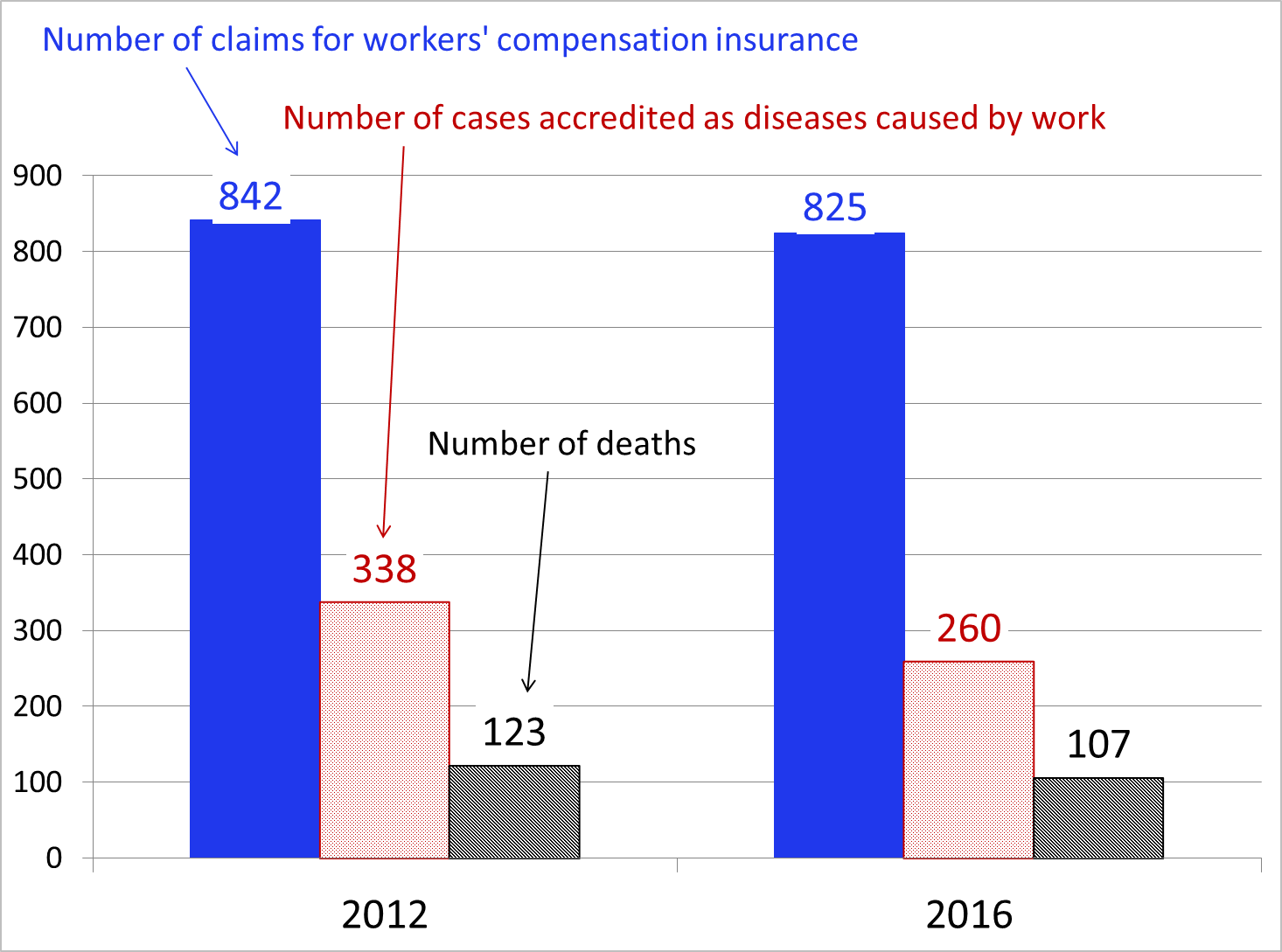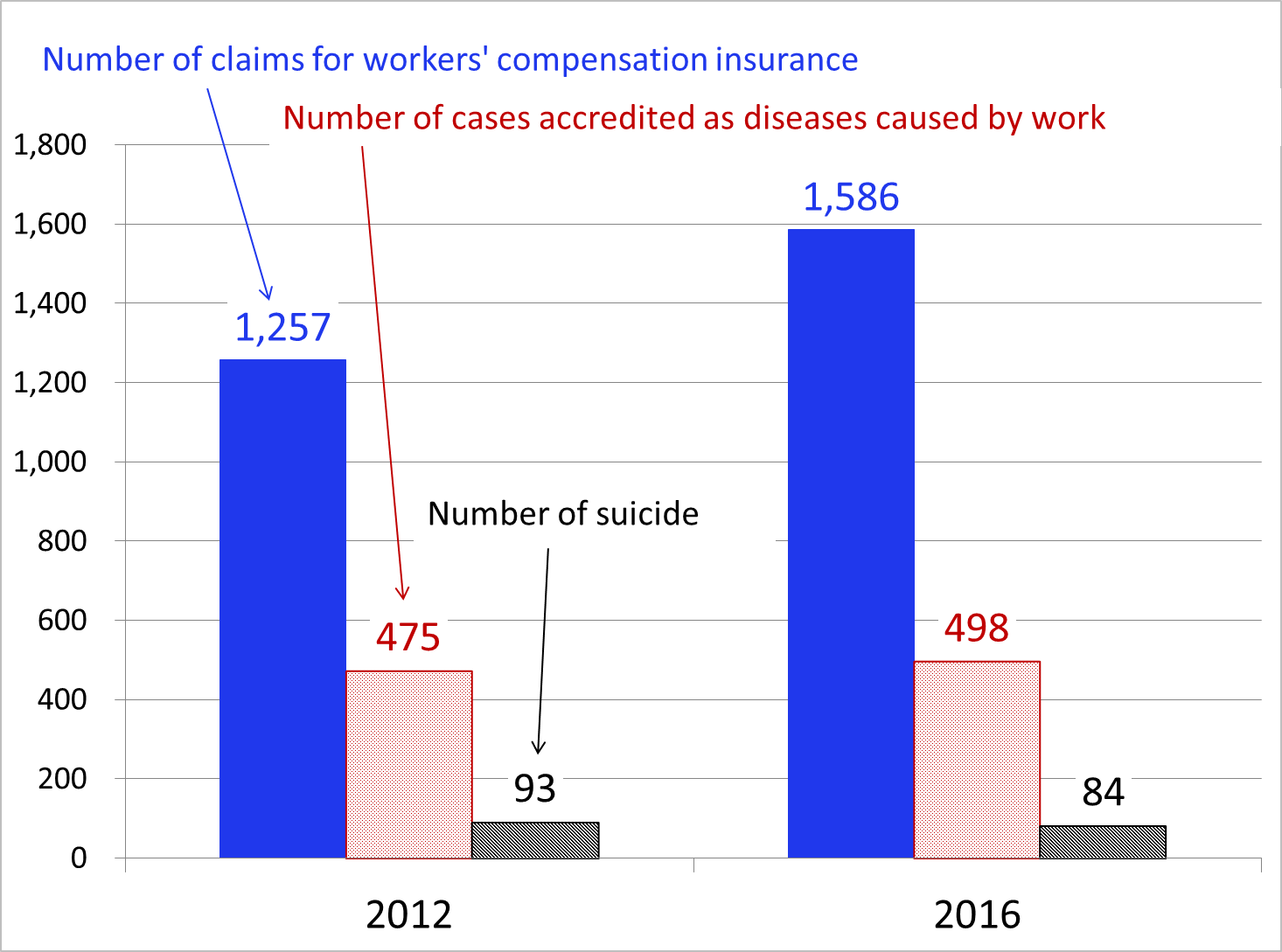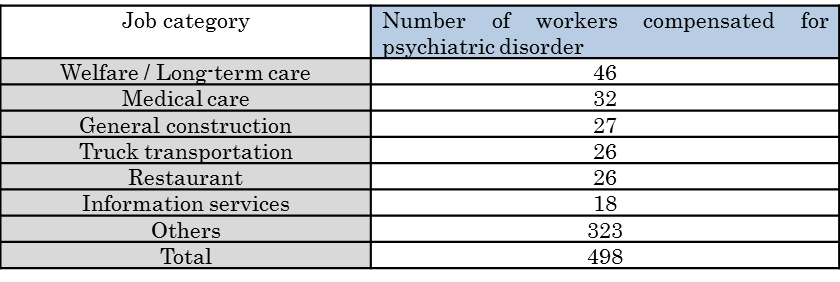Column Finance and the Social Security System 2018.04.10
【Aging, safety net and fiscal crisis in Japan】No.94: Karoshi
Karoshi is a term that can be understood even in English-speaking countries as reflective of Japan's harsh working environment. Karoshi literally means "death from overworking" and can be broken down into "Ka," which means over, "Ro," which means work, and "Shi," which means death. The law dealing with Karoshi classifies death due to an excessive burden of work into two categories: death caused by cerebrovascular disease or heart disease attributed to overwork, and suicide caused by psychiatric disorders.
Figure 1 shows the number of claims for compensation by workers due to cerebrovascular disease or heart disease resulting from excessive work, along with the number of cases where compensation was granted to workers and the number of deaths of workers. These numbers have not increased from 2012 to 2016.
Figure 2 shows the number of claims for compensation by workers due to psychiatric disorders, along with the number of cases where compensation was granted to workers and the number of cases wherein workers committed suicide. The number of workers compensated for psychiatric disorders increased from 475 in 2012 to 498 in 2016. Examining these 498 cases by job category, it is noteworthy that 78 cases are related to welfare / long-term care and medical care (Table 1).

(Source)Ministry of Health, Labor and Welfare


